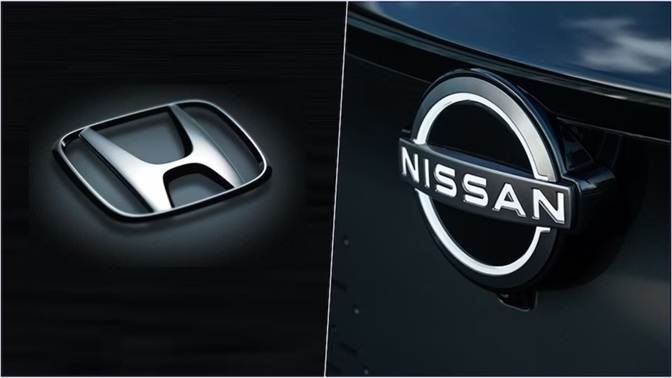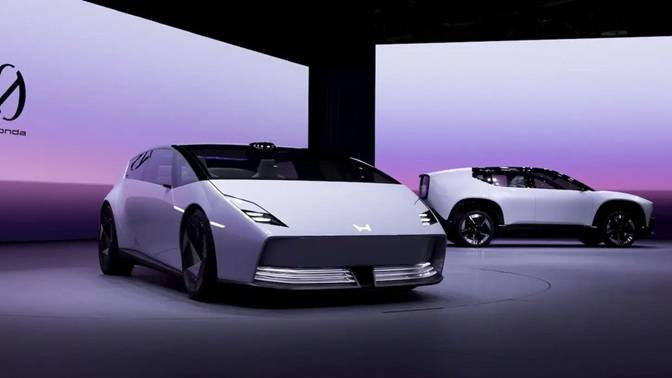The electric vehicle (EV) revolution is in full swing, and traditional automakers are scrambling to keep up. Among them, Honda and Nissan—two of Japan’s biggest car manufacturers—had planned to join forces in a landmark EV merger. This partnership was expected to help them compete with industry leaders like Tesla, BYD, and Volkswagen. However, fresh reports suggest that this highly anticipated merger may not happen after all. Let’s break down what’s going on and what this means for the future of these Japanese auto giants.

Honda and Nissan’s EV Merger – A Short-Lived Plan?
In December 2023, Honda and Nissan signed a Memorandum of Understanding (MOU) to explore a joint EV venture. The deal was expected to create a new EV-focused holding company, giving both companies a fighting chance in a rapidly evolving industry. If successful, the merger would have positioned them as the world’s third-largest automaker, right behind Toyota and Volkswagen, with a combined market value of around $58 billion.
But now, just a couple of months later, it seems the partnership is in trouble. According to reports from Nikkei, Nissan has announced plans to put the talks on hold. Sources claim that the main issue is ownership. Honda is reportedly concerned about Nissan’s turnaround strategies and wants a greater share of control in the partnership, while Nissan insists on equal ownership, as originally agreed.
For years, both Honda and Nissan have been struggling to keep up with the fast-moving EV market. They have fallen behind competitors like BYD and Tesla, who are rapidly expanding their global presence. BYD, for example, sold more vehicles than Nissan and Honda combined in 2023. The Chinese automaker is aggressively launching new EV models in Europe, Southeast Asia, and Latin America, further cementing its dominance.
Even in Japan—Honda and Nissan’s home turf—BYD outsold Toyota in EV sales for the first time. This signals a major shift in the industry, one that Japanese automakers can no longer afford to ignore.

Can Honda and Nissan Keep Up Without Each Other?
Nissan has already taken drastic measures to cut costs and improve profitability. The company recently announced plans to reduce global production by 20% and lay off around 9,000 employees. But the question remains: Will these efforts be enough without Honda’s support?
Honda’s CEO, Toshihiro Mibe, has openly acknowledged the challenges ahead. During a press conference last December, he stated, “The rise of Chinese automakers and new players has changed the car industry quite a lot. We have to build up capabilities to fight with them by 2030, otherwise, we’ll be beaten.” His words reflect a sense of urgency—one that both companies must take seriously if they want to remain relevant in the EV era.
Although both Honda and Nissan have denied making an official decision on the merger’s cancellation, a final verdict is expected by mid-February. If the partnership falls through, both companies will have to reassess their EV strategies.
Possible Scenarios:
- Nissan Moves Forward Alone: Nissan could continue on its own, focusing on cost-cutting and leveraging its existing EV technology. However, this approach might not be enough to match the aggressive expansion of competitors like BYD and Tesla.
- Honda Seeks a Different Partner: If Honda decides not to move forward with Nissan, it may look for another strategic partner—possibly an international automaker with a stronger EV presence.
- A Revised Partnership: There’s still a chance that Honda and Nissan could renegotiate the terms of their merger. If they can agree on ownership structure and strategy, the partnership could still move forward.
The auto industry is undergoing a transformation that happens once in a century. Traditional automakers that fail to adapt risk being left behind. The fate of Honda and Nissan’s EV plans will not only impact the Japanese auto industry but also shape the global competition in the coming years.
For now, the future remains uncertain. Will these Japanese giants unite to challenge their rivals, or will they struggle individually? Share your thoughts in the comments below!




